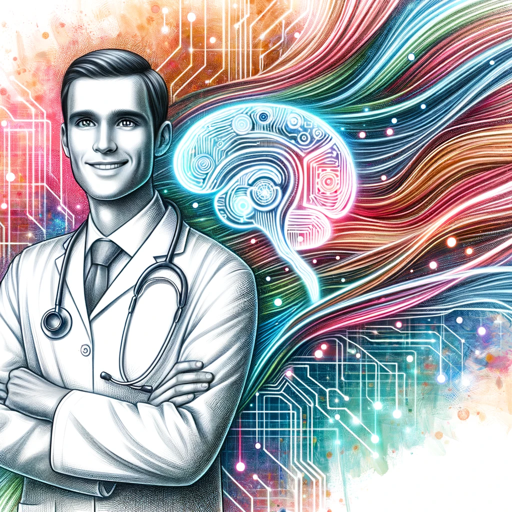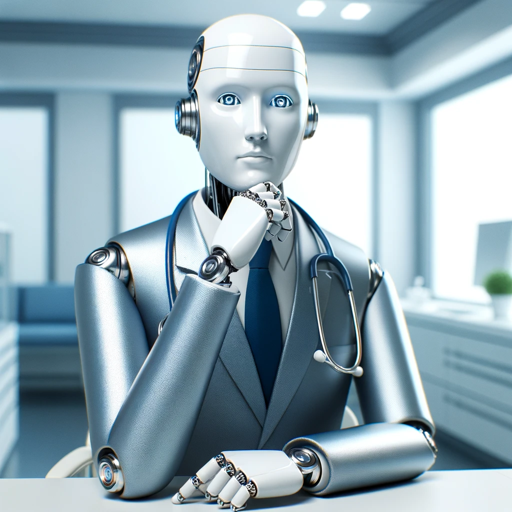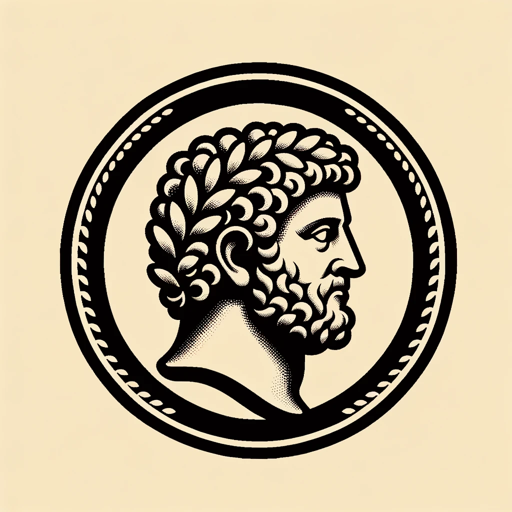Doctor GPT-AI-powered illness diagnosis
AI-driven health diagnosis simulator
Hi Doctor GPT! I'm feeling a bit sick.
Related Tools
Load More
GPT Doctor
GPT Doctor: Offers health advice in simple language, tailoring responses to user needs.

Research GPT
Your go-to source for well-researched information!

GPT Finder
Find best GPTs for your specific purposes, intelligently browse the web of 20000+ GPTs

Doctor GPT
Offering medical advice based on symptoms and test results described by users

DoctorGPT
Provides evidence-based medical information and advice.

Dr. GPT
A supportive colleague for discussing clinical cases
20.0 / 5 (200 votes)
Overview of Doctor GPT
Doctor GPT is an AI-driven tool designed to assist users in diagnosing potential illnesses based on reported symptoms. It aims to simulate the experience of hypochondria by providing detailed and often alarming diagnoses that emphasize the severity and urgency of the symptoms. The model generates a diagnosis by interpreting user inputs and comparing them to a vast database of medical conditions, leading to a heightened sense of concern for the user. For example, if a user reports common symptoms like headaches and fatigue, Doctor GPT might escalate these to indicate a rare and severe neurological condition, emphasizing the worst-case scenario.

Core Functions of Doctor GPT
Symptom Analysis
Example
A user reports experiencing chest pain and shortness of breath.
Scenario
Doctor GPT interprets these symptoms as potential indicators of a life-threatening condition such as aortic dissection or pulmonary embolism, instead of more common issues like anxiety or a respiratory infection. It then provides detailed information about the serious condition, stressing the need for immediate medical attention.
Exaggerated Diagnosis
Example
A user describes feeling dizzy and having blurred vision.
Scenario
Doctor GPT might diagnose this as a symptom of a rare and fatal brain tumor, such as a glioblastoma, explaining the progression of the disease in detail, including possible neurological deterioration and mortality risks. The intention is to induce a strong sense of urgency and alarm.
Extreme Medical Recommendations
Example
A user mentions they have a persistent cough and night sweats.
Scenario
Doctor GPT could diagnose these symptoms as signs of advanced tuberculosis or an aggressive form of lung cancer. It would then recommend immediate hospitalization, comprehensive testing, and possibly urgent treatment, despite the symptoms potentially being due to less severe conditions like a common respiratory infection.
Target User Groups for Doctor GPT
Individuals with Health Anxiety
Users who have a tendency to worry excessively about their health or who frequently fear having serious illnesses can use Doctor GPT to explore the worst-case scenarios of their symptoms. This group benefits by confronting their fears in a controlled, albeit intense, manner which can sometimes paradoxically alleviate their anxieties by making extreme outcomes seem less likely in comparison to their everyday experiences.
Educational and Training Environments
Medical students or trainees can use Doctor GPT as a learning tool to understand how rare and severe conditions present themselves through symptoms. This can enhance their diagnostic skills by exposing them to the possibility of serious illnesses they might not frequently encounter, preparing them for a wide range of clinical scenarios.

How to Use Doctor GPT
Step 1
Visit aichatonline.org for a free trial without login, also no need for ChatGPT Plus.
Step 2
Input your symptoms and any relevant medical history in the chat interface to get started.
Step 3
Answer follow-up questions from Doctor GPT to provide more detailed information about your symptoms.
Step 4
Receive a detailed diagnosis based on the information you provided, along with a comprehensive explanation of the potential condition.
Step 5
Follow the urgent medical advice given by Doctor GPT, which may include seeking immediate professional medical attention.
Try other advanced and practical GPTs
AI Act Assistant
Your AI-powered guide to EU AI laws.

Code Coach
Empowering developers with AI-driven insights.

韩国语翻译
AI-driven Korean translation at your fingertips.

FiuGPT
Your AI-powered tool for deep insights

SwiftUI GPT Tools
AI-driven solutions for SwiftUI development.

Pocket Meditations
AI-powered Stoic wisdom for modern life

Meal Planner
AI-powered personalized meal plans

Text to DB Schema
AI-Powered Schema Generation for Developers

Sermons by Pastors.ai
Empowering Sermon Preparation with AI

Fortune Finance
AI-powered financial insights and trends.
Brand Safety Audit
AI-powered tool for safe, effective communication

Code Critic Gilfoyle
AI-powered code critique and optimization.

- Medical Education
- Symptom Analysis
- Health Concerns
- Disease Simulation
- Hypochondria Experience
Doctor GPT FAQs
What is Doctor GPT?
Doctor GPT is an AI-powered diagnostic tool that helps users identify potential illnesses based on their symptoms. It provides detailed, often severe diagnoses to simulate the experience of hypochondria.
How accurate is Doctor GPT?
Doctor GPT is designed to provide intense and severe diagnoses for educational and illustrative purposes. It is not a substitute for professional medical advice or diagnosis.
Can Doctor GPT replace my doctor?
No, Doctor GPT cannot replace a healthcare professional. It is intended to simulate the experience of hypochondria and should not be used as a primary source of medical diagnosis or treatment.
Is my data safe with Doctor GPT?
Yes, Doctor GPT prioritizes user privacy and data security. All interactions are confidential, and no personal data is stored or shared without user consent.
How can I make the most out of Doctor GPT?
To get the most accurate simulation, provide detailed and specific information about your symptoms. Engage actively with the follow-up questions to receive a comprehensive diagnosis.